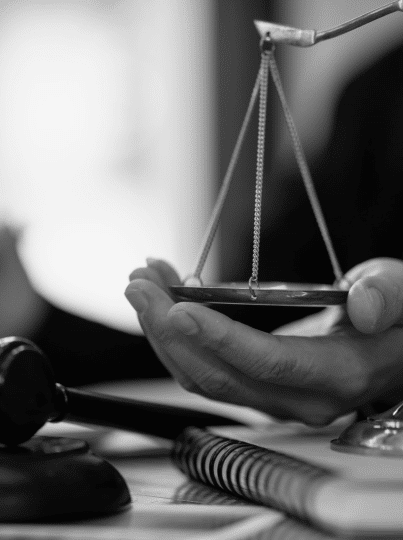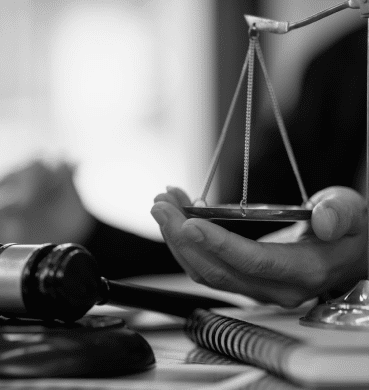New Orleans Police Brutality Lawyer
Police brutality is a longstanding and deep-rooted issue in New Orleans. If you or a loved one are a victim of brutality or misconduct perpetrated by the New Orleans Police Department, you should not hesitate to consult with a skilled civil rights attorney. Police Brutality Center may be able to connect you with a New Orleans police brutality lawyer who can help you down the path toward justice and accountability.
Were you or a loved one a victim of police brutality?
Attorneys that work with Police Brutality Center may be able to assist you.
"*" indicates required fields
Content Last Updated: October 14, 2025
State and federal laws, including the U.S. Constitution, guarantee many civil rights, such as the right to a fair trial and protection against excessive use of force by the police. These rights are also recognized by international law. Though police officers have a duty to respect and defend these rights, many fail to do so. Sadly, police brutality and misconduct are all too common in New Orleans and throughout the country.
Victims of police brutality are often left with severe psychological trauma and physical injury. In many cases, they are killed. In all cases, they are entitled to justice and accountability. If you or a loved one are victims of police brutality in New Orleans, do not hesitate to speak with a civil rights attorney.
Though taking legal action against the authorities who harmed you may feel intimidating, you do not need to handle the process alone. Police Brutality Center is standing by to help you understand and exercise your rights. Contact us today to connect with a New Orleans police brutality lawyer.
New Orleans Police Department History
The New Orleans Police Department has a long history going back as far as 1796. Though it has evolved over time, it has unfortunately developed a persistent reputation for internal dysfunction and corruption, not to mention serious civil and human rights violations.
Even in modern times, racial profiling and excessive use of force remain common within the NOPD. After the notorious Danziger Bridge Shooting in the aftermath of Hurricane Katrina, a federal investigation led to much-needed reforms. Even so, serious violations persist.
In recent years, the NOPD has also faced serious staffing issues. Before Hurricane Katrina, the department had over 1,600 officers. By mid-2022, the number dropped to 981. It is expected to fall further. To address the ongoing problem, the NOPD has turned to hiring civilians to respond to nonviolent calls for service.

Cases of Police Brutality in New Orleans
Too many individuals have suffered unwarranted abuse and civil rights violations at the hands of the NOPD, leaving the department’s reputation as a law enforcement agency badly tarnished. This section explores just a few major cases of police misconduct and brutality in New Orleans.
Police Reform and Legislation in New Orleans
The NOPD and supervising bodies have tried to reduce the kinds of incidents described above through a series of reforms. The most notable effort in modern times is a Consent Decree put in place as a result of a federal investigation conducted by the U.S. Department of Justice. This initiative attempts to improve the NOPD’s recruiting, training, and disciplinary procedures, as well as reduce excessive use of force among its officers.
To ensure compliance, a federal court also ordered the appointment of a Consent Decree Monitor. This adds a layer of accountability vital for the Consent Decree to achieve its goals.
The so-called “Ethical Policing Is Courageous” (EPIC) program also aims to ensure compliance and accountability within the NOPD. This program encourages police officers to monitor their own ranks to stop misconduct. It teaches officers how to intervene before another officer commits a violation and trains them to identify red flags before it is too late.
Though these efforts may have led to some improvement, they do not go far enough to achieve their goals. Police brutality and misconduct remain deep-seated issues in New Orleans and beyond. Victims deserve justice, accountability, and compensation.
New Orleans Police Brutality Lawyers
Many skilled lawyers are dedicated to fighting against police brutality in New Orleans. If you or a loved one have been a victim of police brutality or misconduct, Police Brutality Center is here to connect you with an experienced attorney.
For example, Lionel “Lon” Burns was the attorney for the family of Wendell Allen, a victim in one of the tragic shootings discussed above. Burns secured a $250,000 settlement for Allen’s family.
Glenn McGovern is another New Orleans attorney fighting against police brutality. He represented the family of Adolph Grimes III in a lawsuit against New Orleans. Though Adolph was killed by police in 2009, McGovern helped his family file a lawsuit over a decade later.
These are just two of many lawyers dedicated to helping victims of police brutality and misconduct fight for justice. Police Brutality Center is here to help you find the high-quality legal representation you deserve on the path toward accountability and compensation.


Why Work With a Police Brutality Lawyer?
Police brutality cases often result in criminal and administrative penalties for offending officers. However, by filing a civil rights lawsuit, civilians can also hold these officers accountable for their violations, as well as recover compensation for the losses they suffer from the brutality and misconduct. Though money often cannot truly compensate for these kinds of losses, it can provide victims with a measure of justice and empowerment.
That said, because defendants in police misconduct cases enjoy robust legal defenses unavailable to civilians, it is important to work closely with a skilled attorney who knows how to handle these obstacles. Further, the sooner you consult with an attorney, the sooner they can begin investigating your case to ensure no evidence is lost or tampered with.
Finally, consulting with an attorney early on will help ensure that you do not miss any important deadlines in your case, including the statute of limitations. In most cases, victims of police misconduct in Louisiana must take legal action before one year passes after the violation. Failure to comply with this and other deadlines can severely compromise your case or eliminate your right to file a lawsuit altogether.
Filing a Civil Rights Claim in New Orleans
There are a few ways to take action against police brutality and other civil rights violations in New Orleans. One option is to file a complaint directly with the NOPD. You can also file complaints with other agencies, including the Department of Justice and the FBI.
However, consulting a reputable attorney first is the best way to ensure you bring the strongest case possible. An attorney can even help you file a lawsuit against the violating officers and police department. Police Brutality Center is ready to ensure you know your full legal rights and are not taken advantage of. Contact us today to learn more about getting legal help.
